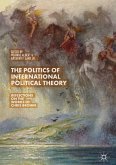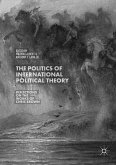This book explains why there is a pronounced disjuncture between R2P's habitual invocation and its actual influence, and why it will not make the transformative progress its proponents claim. Rather than disputing that R2P is a norm, or declaring that norms are insignificant, Hehir engages with post-positivist constructivist accounts on the role of norms to demonstrate first, that the efficacy of a norm is not directly related to the extent to which it is proliferated or invoked, and second, that in the post-institutionalization phase, norms undergo both contestation and (potentially regressive) reinterpretation. This volume analyses the evolution of R2P, and demonstrates that it has been steadily circumscribed and co-opted, so that today it has no power to meaningfully influence the behaviour of states. It is essential reading for academic audiences in the disciplines of International Relations and International Law.
"The overwhelming majority of Security Council resolutions which mention R2P have referred exclusively to the host state's primary responsibility to protect human rights and thereby reinforced R2P's state-centrism and conservatism. ... the most fascinating element of the book, ... is that it exposes the problematic and even counterproductive nature of R2P's progress and the consensus that has been created around the norm." (Christof Royer, Journal of Intervention and Statebuilding, April 26, 2019)








